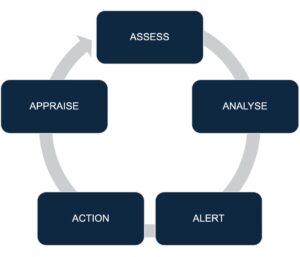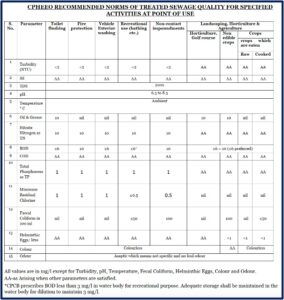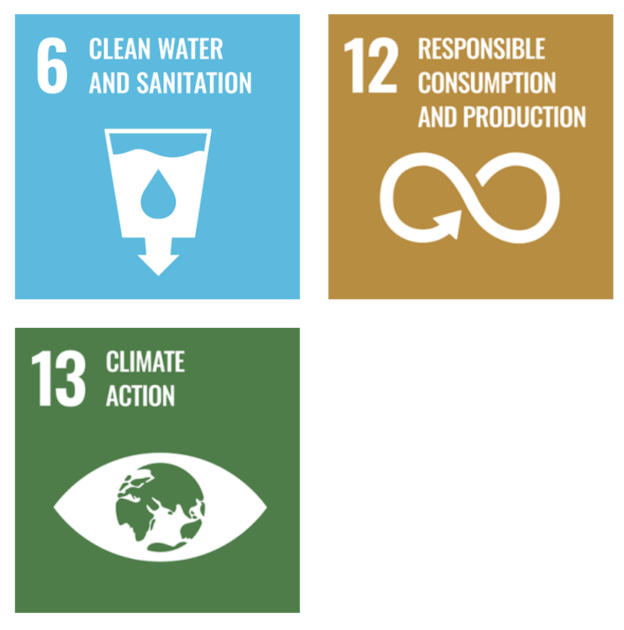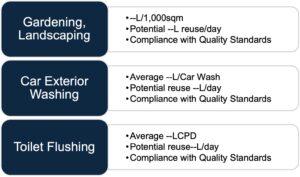Water is an essential resource necessitating sustainable management practices. SDG target 6.3 focuses on halving the amount of untreated wastewater and greatly enhancing global recycling and safe reuse by 2030. SDG indicator 6.3.1 tracks the proportion of total, industrial, and domestic sewage that meets national or local treatment standards. Water stress affects residential, industrial, and agricultural sectors worldwide. The global platform 50L Home promotes water circularity, resilient water management, and carbon efficiency. According to its observation, “On average, the energy required for household water use is approximately 18% of total energy use in the home, contributing to greenhouse gas (GHG) emissions.”
Why does Property Management need to focus on Water Management?
A strong water management system is essential for environmental and operational sustainability and for safeguarding the health and well-being of communal housing residents. Governmental and non-governmental ecological protection agencies are becoming more watchful of water pollution and consumption. Regulations are continuously being established and updated, aiming at water conservation and environmental preservation. Consequently, housing societies need to develop innovative strategies to ensure the health and well-being of residents while maximising water conservation.
The prevalent challenges associated with transitioning from a disposable wastewater model to a practice of optimised freshwater usage, efficient wastewater treatment, and the reuse of treated wastewater within communal housing water management regimes.
- Lack of access to adequate clean domestic water
- Poor monitoring systems for drinking water quality and continuity.
- Minimal or no recycling and reuse of treated safe wastewater
- Insufficient metering system for tracking water flow usage.
- Inadequate understanding of water sustainability issues.
Why is treated wastewater reuse significant for the Housing Society?
- Reusing treated wastewater is a key approach to achieving water sustainability, as envisioned by 50L Home’s goal of “daily 50L per person that feels like 500L”.
- Groundwater is depleting at an accelerated rate, necessitating government authorities to implement regulations concerning water extraction hawkishly.
- City Administrators are dealing with significant water scarcity and environmental pollution, mandating stringent water supply and sewage discharge norms for group housing.
- On average, wastewater is estimated to account for 80% of the domestic water supply. The target for efficient treatment and reuse of wastewater is 40%, with a progressively higher share of total wastewater generation in the coming years.
- The energy expenditure constitutes a substantial portion of the overall operational costs associated with water management. Housing societies aiming for sustainability accreditation and certification necessitate implementing adequate water and energy management systems.
Property Manager’s approach

- Design Parameters of a Sewage Treatment Plant
- Challenges for Property Managers
- Lack of sufficient knowledge regarding design intent and details.
- Undercapacity of the STP is a common issue within the Group Housing Society.
- Assessing the design and construction gap poses a significant challenge for Property Management’s in-house team.
- Options for Reuse of Treated Wastewater in Group Housing
- Challenges in Group Housing Society
- Cultural and perception barriers hinder the acceptance of recycled wastewater for domestic non-potable use.
- Inadequate maintenance leads to frequent failures in treating grey and black water at the Sewage Treatment Plant. The quality of recycled wastewater supplied to residential units, landscaping, and other usage points deteriorates, leaving end users unaware of the system’s failures.
- There is also insufficient monitoring of the availability of treated wastewater for reuse.
- The Property Management team has not effectively established a mechanism to resolve end-user complaints.
- Reuse options

- Reuse options
3. Choice of Sewage Water Treatment technology
Various technologies have been established in the sewage treatment engineering sphere.
- Challenges in choosing the right technology–
- The growing demand for reusing treated wastewater has required the implementation of suitable technology based on operational needs loads from the outset of the construction phase and during any modifications and expansions. Property Management would need subject matter experts to identify the most suitable technology.
- Subject matter experts and stakeholders must deeply dive into the cost viability of installation, operations, and maintenance.
- Innovative solutions requiring capital investment are being slowly adopted. A comprehensive risk assessment is essential to building a business case for adopting new technology.
Implementing new technology is intended to achieve specific objectives related to reuse. The selection process for appropriate technology necessitates careful evaluation of both on-site and off-site options, considering factors such as land area (sqm/KL), capital investment (INR/KL), operational costs, reliability, and maintainability.
4. Metering and monitoring the domestic water system
- Challenges in metering water system
- General negligence regarding water sustainability is evident.
- The lack of financial motivations for water conservation resulted in most users relying on unmetered water.
- Without a metering system, the maintenance team operates on flawed assumptions about water utilisation.
- Insufficient metering data prevents proactive maintenance and operational measures from being implemented.
- Consequently, sustainability initiatives and reporting suffer.
In group housing societies, smart meters can be installed to monitor, control, report and analyse water availability and usage and identify opportunities for conservation.
Bulk metering systems should be designed by zone and group consumers within a system or subsystem to conduct a water audit. This approach will help pinpoint areas where water is being wasted.
5. Service Level Benchmarks
The terms of service level are intended to establish appropriate expectations among service partners and stakeholders. The service level delineates the guiding principles from a design, construction, operations, and maintenance perspective.
- Challenges arise in the implementation of these standards in setting and effectively implementing Service Level terms are –
- The design and construction of the sewage treatment plants (STPs) have been inadequately executed to curtail capital expenditures.
- Financial incentives and sustainability certifications are confined to a few group housing societies.
- The cost recovery mechanism for wastewater treatment plants’ construction, operation, and maintenance has not been meticulously designed.
- There is a significant lack of awareness regarding sewage pollutants’ environmental, public health, and well-being impacts.
- The limitations surrounding advanced technology and innovations to achieve qualitative and capacity-handling objectives are notable.
Service level benchmarks
- Coverage of Sewerage (100%)
- Treatment Capacity Quality of Sewerage Treatment Plant (100%)
- Reuse and recycle of sewage (20%)
- Cost recovery in wastewater management (100%)
- Redressal of Customer Complaints (80%)
- Extent of metering of watering connections (100%)
The Central Public Health and Environmental Engineering Organisation (CPHEEO-India) has outlined standards for the quality of treated wastewater.

6. Water Conservation
- Promote public awareness concerning water sustainability.
- Utilise treated wastewater and harvested rainwater for irrigation, toilet flushing, cooling towers, and vehicle washing.
- Promote the use of water meters or timers among consumers.
- Implement strategies to identify and mitigate water leakages. Particular attention should be paid to leaking toilets, sink faucets, and showerheads, as these account for a significant portion of water wastage.
- Minimise the flushing volume of water closets, showers, kitchen sinks, and toilet handwashing facilities.
- Promote drought-resistant planting alongside efficient irrigation systems.
- Encourage the adoption of water-efficient appliances, including washing machines and dishwashers.
Sewage water treatment plant operation and maintenance are vital for property management services. The Property/Facility Management team is responsible for maintaining the system, with the primary goal of promoting the environmental sustainability objectives set forth. Whether through sustainability certifications or not, maintaining the STP and repurposing treated wastewater is crucial in contemporary group housing societies.



Good https://is.gd/tpjNyL
Awesome https://is.gd/tpjNyL